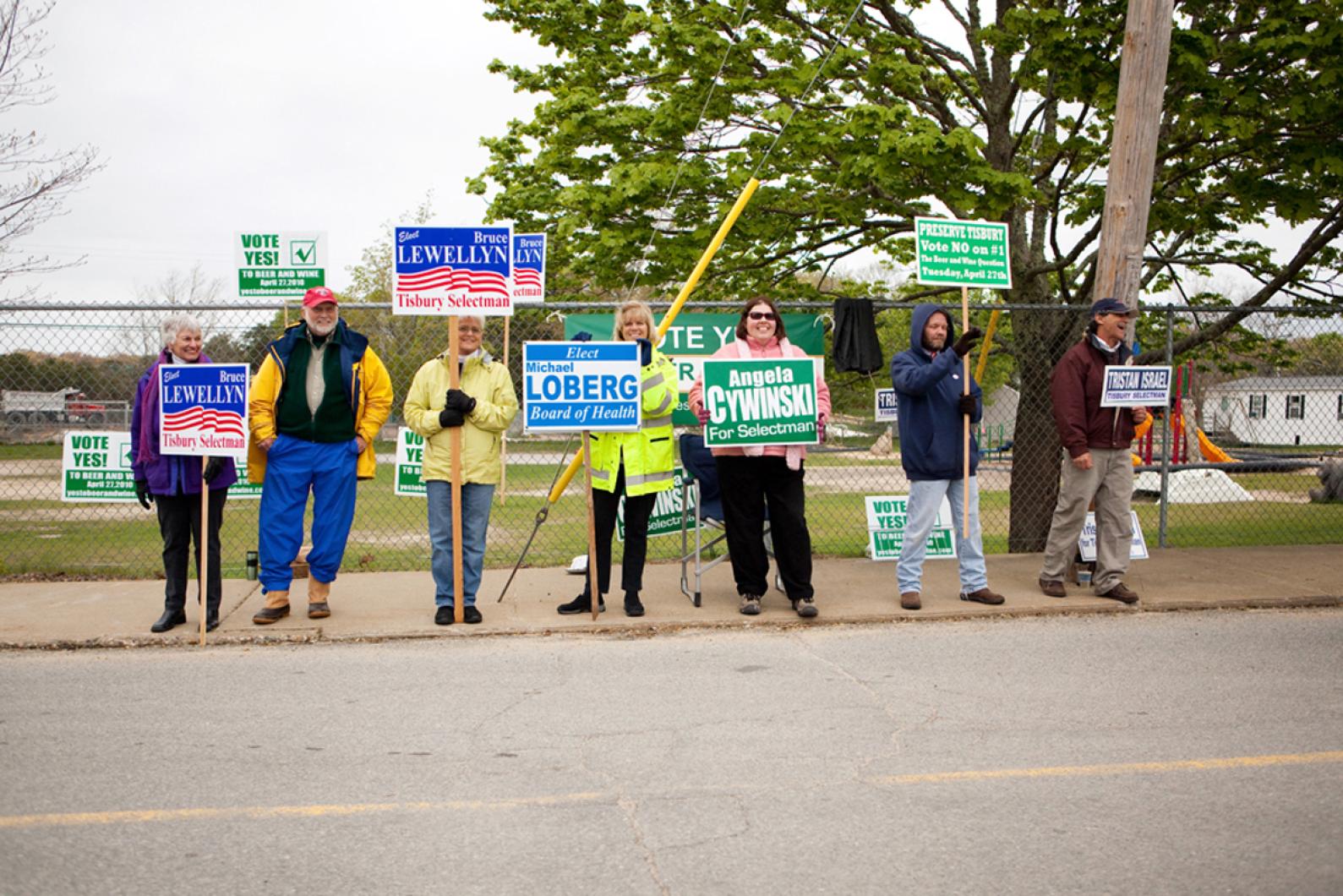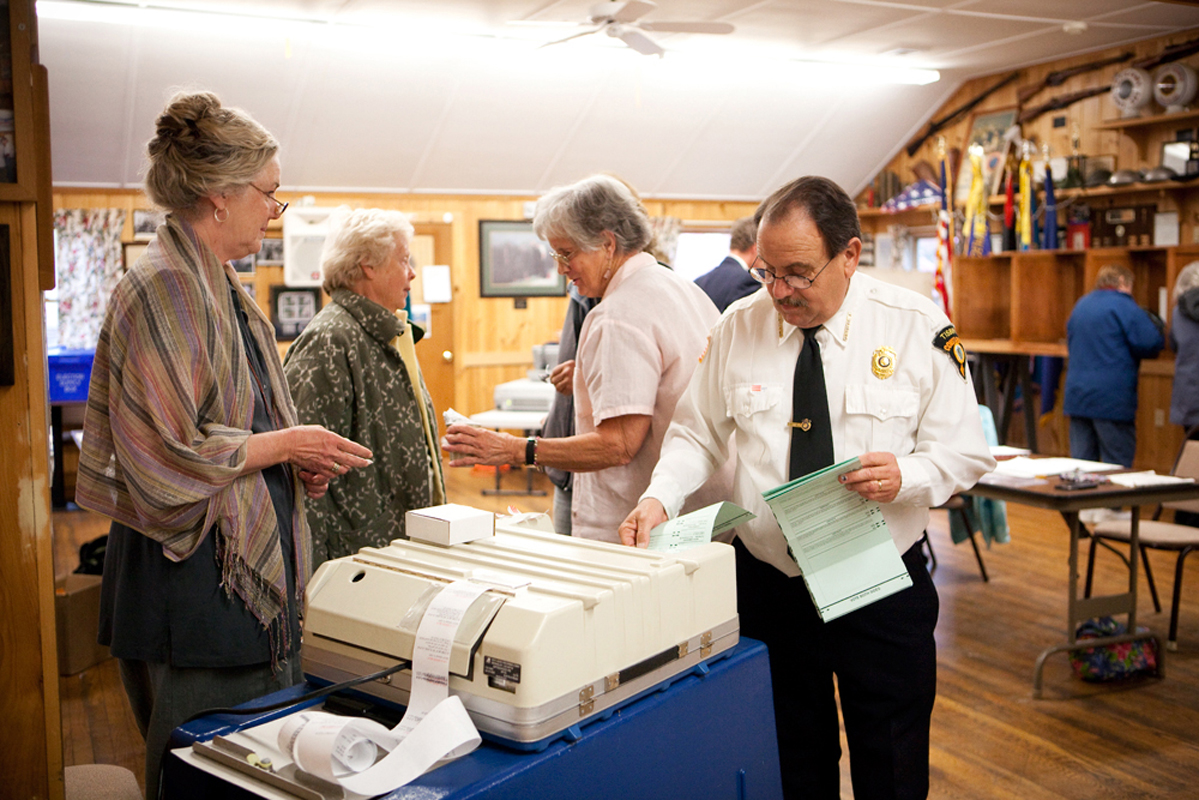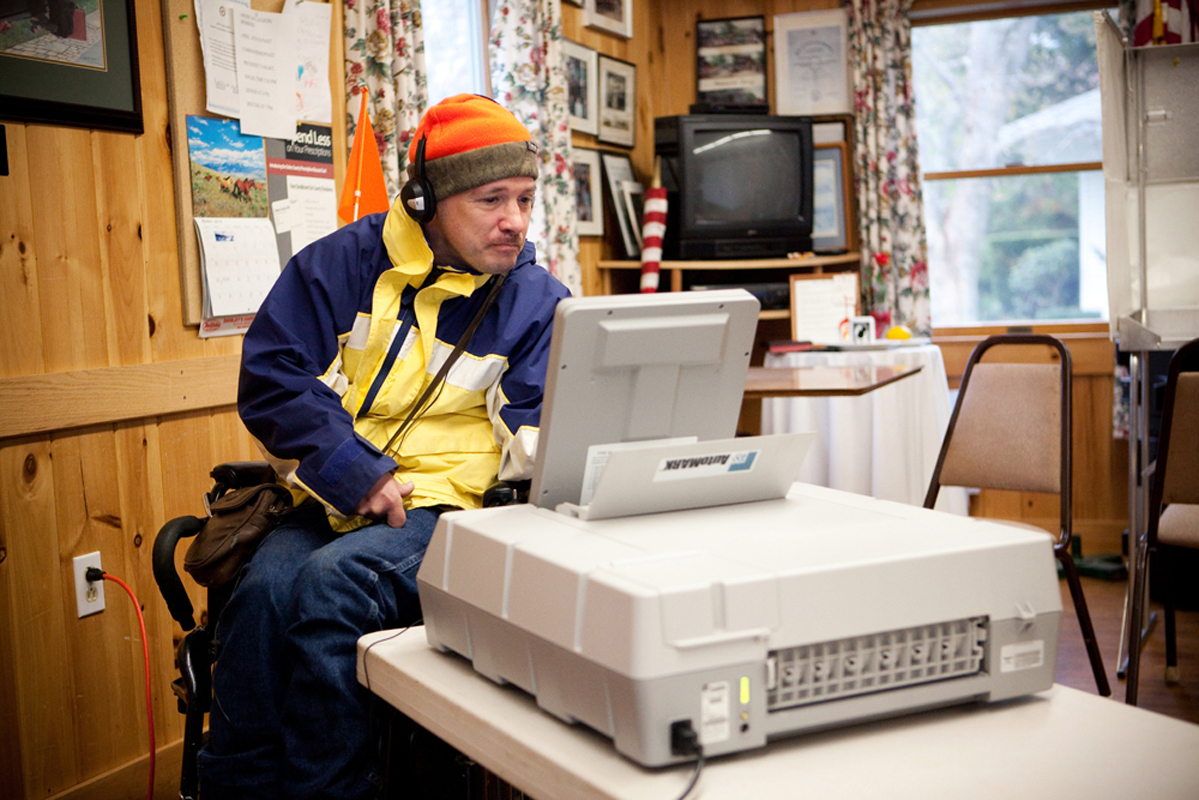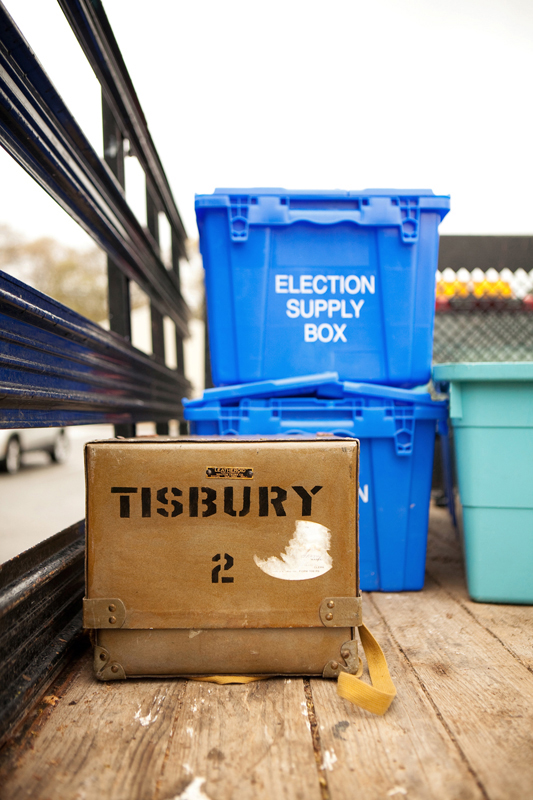After long controversy and indecision, Tisbury voters on Tuesday approved the sale of beer and wine in the town’s restaurants.
Tisbury selectmen now will be empowered to issue as many as 19 year-round licenses and an unlimited number of seasonal licenses for the sale of beer and wine.
Proponents of beer and wine sales have been pushing the measure for five years. When all the votes were tallied on Tueday night, they had won by a clear margin: 881-747.
The last time the beer and wine question was put to a ballot, two years ago, a first count scored it 690 votes all. A subsequent recount found two more no votes.
This time around, however, it is two other ballot questions which are causing uncertainty. One, which failed by a bare 10 votes, will almost certainly require a recount, and another is likely to require a special town meeting to be held before June 30.
The bigger problem is with an issue town officials had not expected to be problematic — a proposal to increase taxes to fund the $225,000 cost of increases to police pay. Despite the fact that the proposal was supported by the selectmen, finance and advisory committee and a large majority at annual town meeting, it was heavily defeated.
There were 934 votes against the question and 606 in favor.
The $225,000 would have paid back pay of $125,000 and raises for 2011 due under an arbitrated agreement with the police union. Yesterday, town officials still were unsure what to do about it.
“We will have to pay it,” said finance director Tim McLean.
But without the approval of voters, the question was how to do it.
Mr. McLean said they were seeking guidance from counsel.
Selectman Geoghan Coogan met with police yesterday. Afterwards, he conceded town leaders “blew it” when it came to explaining to the people the importance of the police pay issue and the consequences if it failed to pass.
He said the town now had essentially two options. They could either start negotiations with the police over again, or put the agreement to voters again at a special town meeting.
“And having spoken to the police, I can tell you neither side wants to start negotiations over,” Mr. Coogan said.
The question then becomes whether town officials are willing to risk trying again to fund the extra police costs through a budget override — which would require a fresh ballot — or finding the money somewhere in the existing budget, such as through a raid on the town’s free cash.
Selectmen are expected to discuss the problem at next Tuesday’s meeting of the board.
The other ballot complication was the vote on question three, which sought $125,000 for a new refuse truck, and was defeated 777 votes to 767. It is likely there will be a recount.
The turnout for the election was historically large: 1,639, or 56 per cent of those registered to vote, probably largely attributable to the beer and wine question.
But there were several other hot issues to be decided too.
The long-serving chairman of the board of selectmen, Tristan Israel, was up for re-election, and faced a serious challenge from retired lawyer Bruce Lewellyn, as well as from Angela Cywinski. Mr. Israel received 866 votes, Mr. Lewellyn 543 and Ms Cywinski 168, which means Mr. Israel’s 17 years of service on the board will be extended to 20.
The ballot for one position on the board of health also was significant. Incumbent Kenneth Garde was widely expected to have a tough fight for his position.
Since his last election, members of Mr. Garde’s family have been found to have dealt large quantities of heroin from his home. He also is involved in a protracted legal dispute over a selectmen’s order banning three of the family’s dogs from town, which has cost the town some $14,000 in legal fees.

As it turned out, the biggest vote in favor of any candidate or question went to Mr. Garde’s opponent Michael Loberg, who won by 1,265 votes to 259.
In order to get support for the beer and wine measure, proponents agreed to various conditions. To be licensed a restaurant must seat at least 30. Beer and wine can be consumed only by patrons seated at tables, drinking with substantial meals.
Beer and wine sales, they hoped, would make restaurants in Vineyard Haven competitive with those in Oak Bluffs and Edgartown. They also argued there would be spin-off benefits for other businesses.
When the preliminary results of the count were read out by Tisbury town clerk Marion Mudge shortly after the close of polling on Tuesday night, there was quiet celebration among those in favor.
Later one of the prominent advocates of restaurant beer and wine sales, Susan Goldstein, proprietor of the Mansion House, said she had not known what to expect, given the long controversy about the measure and its narrow defeat last time.
“You just never know with a local ballot. You never know what will happen in the privacy of the voting booth. I kept myself vigilantly from having expectations,” she said.
Mrs. Goldstein said it was a victory for determination.
“That is the beauty of American democracy: the ability to keep on coming back and re-addressing problems.
“I think perhaps the electorate spent a couple of minutes to educate themselves on what was really involved and saw through the scare tactics. Kudos to the voters.”
She said opposition would fade once the new licensing regime was in place and people saw that the dire predictions of negative social effects would not come to pass.
“I am convinced that years from now people will look back and ask what all the hullabaloo was about. This will be such a nonevent.
“I just think it will be civilized. I hope the selectmen take their time and craft a process that works.”
Tisbury town administrator John Bugbee said a process already was in place, although the town had not yet begun accepting license applications from restaurants.
“The ballot questions must now be certified before the town can begin accepting license applications,” he said in a statement. “The town does have regulations in place to oversee the sale of beer and wine in Tisbury restaurants that qualify.”
The regulations were drafted over the past two years and approved by the board in March. Mr. Bugbee said he would issue a release when the town was ready for applications.
Apart from beer and wine and the two ballot questions rejected by voters, three other smaller spending questions were handily approved. They involved spending $20,000 to replace a road sander body, $20,000 to paint the outside of the senior center, and $75,000 to partially fund a new school generator.
Most of the town positions up for election were uncontested. The successful candidates in those races were: Angela Cywinski for assessor (1,130 votes); Colleen McAndrews for school committee (1,179); Elmer Silva Jr. for water commissioner (1,247); Daniel Seidman for the planning board (1,088); James Norton (1,049) and Karen Ann Casper (972) for library trustee for three years; Heather Quin, library trustee for one year (1,165); Frederick Thifault for public works commissioner (1,163); and Peter Hefler for the finance and advisory committee.
For four positions there were no candidates listed on the ballot paper and were decided by write-ins. One three-year position on the library committee went to Dolly Campbell, with 33 write-in votes.
Three positions on the finance and advisory committee also were decided the same way. They went to John Packer (42 votes), Bruce Lewellyn (19) and Mary Anny Oggioni Deyette (12).







Comments (3)
Comments
Comment policy »